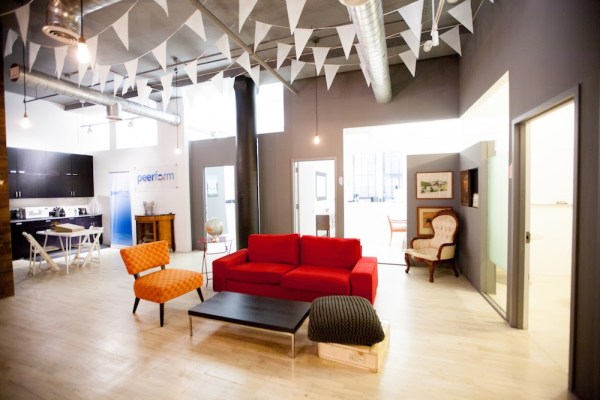Knotel announced today that it has raised $25 million in Series A funding.
Founded in 2015, the company offers what co-founder and CEO Amol Sarva described as “headquarters as a service” — a flexible office space that can be customized for each tenant while also growing or shrinking as needed.
This might sound like it’s addressing the same need as WeWork and other coworking spaces, but Sarva (who was previously co-founder at Virgin Mobile) argued that Knotel is “not coworking.” It’s not just a way to rent out a few desks, but rather to build your company’s office without the risks of a long-term lease.
“It’s a culture-coded environment — it’s your spot,” Sarva said.
This should appeal to startups, where headcount might double or triple one year, and then drop again the next. (I’ve certainly visited startups that were clearly trying to squeeze way too many people into their office, and others who’d leased way more space than they needed and tried to fill things up by renting to others).
“Why would you waste your [venture capital] on real estate?” Sarva said. “A lease is like buying. At Knotel, you don’t buy anything — everything is a service.”
At the same time, Sarva also said the spaces have attracted non-tech tenants, including “media companies, television, finance, regular businesses.”
Knotel’s Series A comes from investors including Invest AG, Bloomberg Beta, 500 Startups, Rocket Internet and various angel investors. Sarva said the money will allow the company to add 40 locations over the next year to the 10 it already operates in New York City. Sarva said New York remains Knotel’s immediate focus, but “we’ll definitely be in other cities.”
By the way, given all of Sarva’s warnings about the risks of traditional real estate, it’s worth noting that Knotel isn’t buying up a lot of property itself. Instead, it’s running a “managed marketplace” to connect tenants and property owners.
Sarva said he tells the owners, “Let us run this place, we’ll give you most of [the earnings] and we’ll keep a margin. If times are bad and the place is a little empty, that’s cool — we both stay in business.”
